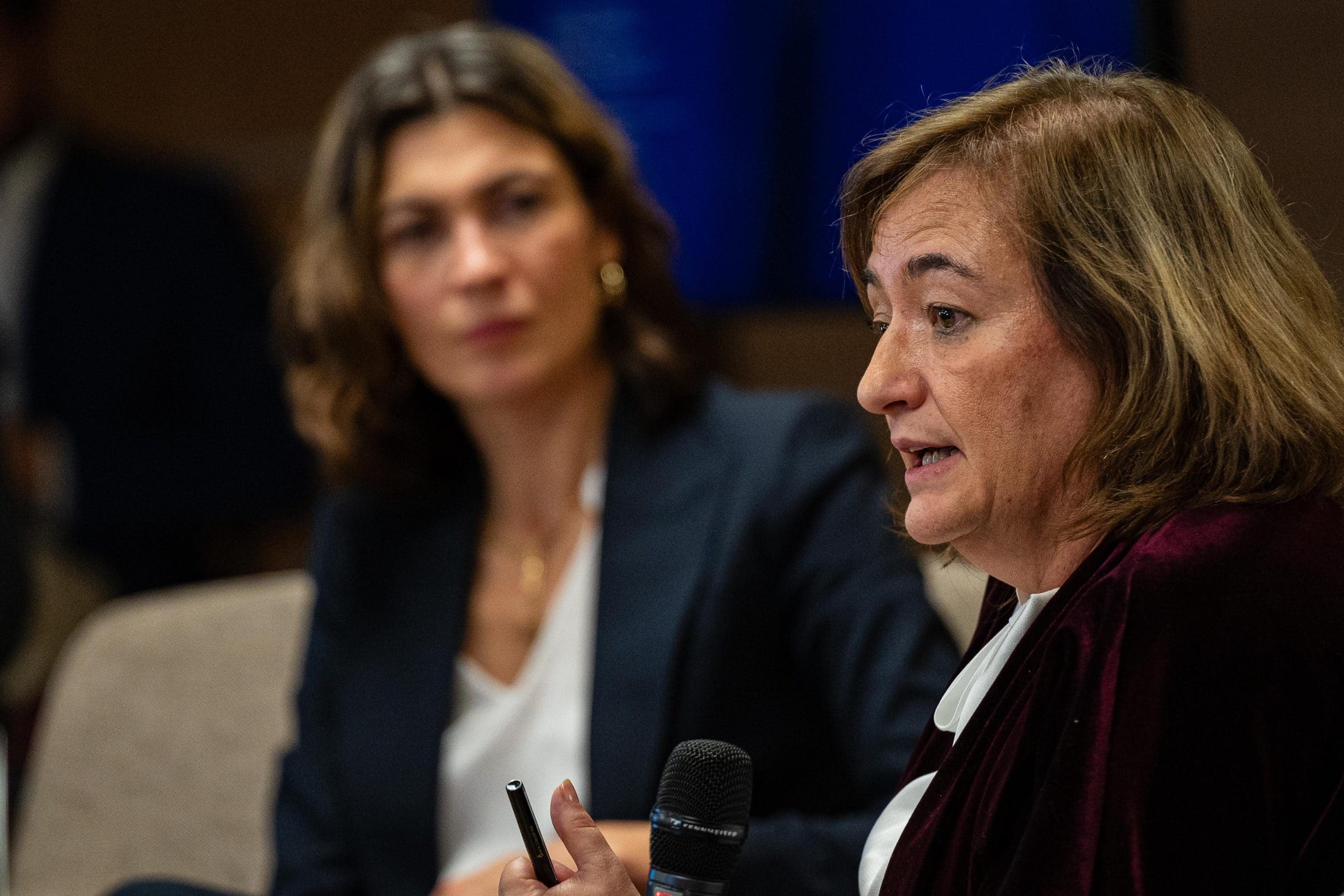
The President of the Independent Authority for Fiscal Responsibility (AIReF), Cristina Herrero, took part today in a session on the reform of the fiscal rules organised at the headquarters of the European Parliament in Madrid, where she advocated the importance of ambition in the reform of the fiscal rules currently being debated in Europe.
During her speech, Cristina Herrero highlighted the two key elements of the proposal presented by the European Commission in April which, in her opinion, must be maintained: the Commission’s commitment to transfer the initiative to Member States to define medium-term fiscal paths adapted to their singular features and differentiated, and the change of focus on fiscal supervision, with a primary role and focus on public expenditure rather than the fiscal imbalance or structural deficit.
However, the ECOFIN negotiations seem to be developing in a different direction to the Commission’s proposal, introducing safeguards that would result in a relative reversal of the national appropriation of fiscal discipline and a less significant role from Independent Fiscal Institutions (IFIs) like AIReF. According to Cristina Herrero, if there are too many safeguards, the differentiation of the paths may become diluted and the new framework may end up being similar to the previous one, with common rules for 27 different realities.
The President of AIReF stressed the importance of medium-term planning included in the Commission’s proposal, which obliges Member States to make a stable commitment to multiyear spending that is compatible with reducing debt. The role of the IFIs will be key in drawing up these multiyear paths, given that they can make important contributions to the new framework both at a technical and institutional level, given their greater knowledge of the reality of each country and their capacity to contribute to preventing the determination of the paths ending up in a bilateral and opaque negotiation between the European Commission and the Member States.
The role of IFIs
The President explained that technical analyses of sustainability, growth and such fiscal risks as ageing, among other variables, are required to propose these multiyear spending paths. All these parameters vary greatly from one country to another and if the Commission has to draw up 27 technically-different paths, the development of homogenous and uniform methodologies will inevitably mean that the singular nature of each country is lost. In her opinion, the approach to differentiated multiyear expenditure paths inevitably requires analysis by the IFIs, which in no case would replace the Commission’s analysis.
According to Cristina Herrero, the main arguments for not strengthening the role of IFIs focus on the fact that not all of them are ready to take on more functions, however, what is true is that in those countries with higher debt, such as Spain and Italy, IFIs are strong institutions. AIReF, for example, has included medium-term scenarios in its latest report for each Autonomous Region, something that the Commission could not do despite the fact that compliance by the regions depends, to a great extent, on compliance with the overall target of the General Government Sector.
European funds – the investment priority
Finally, as regards the intention of the European Council and Parliament to go further and exclude more investments from the expenditure rule, the President recalled that the golden rules that establish exceptions to certain items may introduce many distortions, and hence it is advisable to minimise their use. First, because the exclusion of certain investments only makes sense if they contribute to long-term sustainability, which is hard to determine. A clear example exists in Spain: the financially sustainable investments of municipalities.
Furthermore, these golden rules open the debate on which items should be excluded. “Why social spending and not spending on health or education which impact productivity?”, she asked, after considering that, in addition, this would add greater complexity to the new framework. In fact, the President ended her speech by stressing that the priority at this time must be to focus on being able to absorb all the funds under the Recovery and Resilience Facility and direct investment well so as to achieve the dynamic effect expected on the economy.





